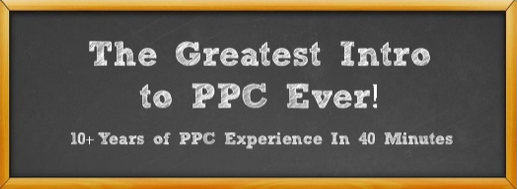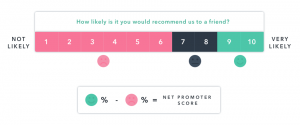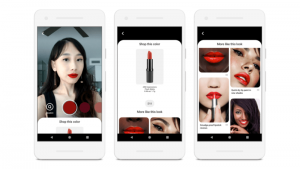I have had a lot of experience working with, working for, and even running small businesses (granted, I ran them into the ground – but that taught me a lot too). In my experience, too often small businesses lose sight of the big picture of why they started doing something and forget about the true results they hope to achieve. For example, objectives like lowering cost per click eventually replace their true goal, which should be increasing revenue at a rate greater than increasing costs. After all, I can lower my CPC to zero if I stop advertising, but will that grow my business? In that same direction, SMBs often (mistakenly) see Google as their competition when it comes to AdWords.
WordStream recently surveyed our clients and asked, “Why do you use paid search? How do you know your AdWords account is working for you? Which keywords and ad campaigns are driving the most traffic to your site?”
One respondent best summed up the sentiment of many of the responses: “All I know is, when I stop advertising my phone stops ringing.”

In Larry Kim’s webinar The Greatest Intro to PPC Ever! he stated, “AdWords is just a game.” It is. Many see it as a game of chance: I throw my money in, dreaming to win big, hoping I get at least some of it back. However, there’s often a disconnect between the “throw my money in” and “get at least some of it back.” In this post, I hope to convince you that AdWords is not merely a cost but a source of revenue.
Winning AdWords: Cause and Effect
Every month, without fail, I see a charge on my credit card statement showing me exactly how much I spend on AdWords. “Grrr… Why do I continue to pay this every month?!? AdWords is hard! Google is evil!” (This reminds me of a recent Seth Godin post, “We need to hate them more.”)
Whether I have sold products on my website, finished a worksite job, or landed a new monthly client, something has caused my business’s proverbial cash register to ring and I can keep the lights on for one more month.
Rarely when that cash register rings do I take the time to reflect upon how that transaction started by asking, “What caused that customer to come in the door?” Of course I don’t. If anything, I may think, “Wow! I worked really hard to close that deal and make that sale. I do good work. Now, on to the next one.” Rightfully so. Because I work hard and I do good work. But let’s give a little credit where credit is due. How did that relationship start? What caused that customer to come in the door? Very often it starts with your advertising, and that in large part (or entirely, for some organizations) is done in AdWords. It’s just very easy to overlook the connection between that monthly credit card charge and the cash register ringing.
Lest you think I am merely a shill for Google at this point, let me say this: AdWords is hard. Tim Warner, Sales Director at WordStream, recently explained, “AdWords is an easy concept that’s really difficult to master.” He went on to say, “AdWords is just a tool to generate more business. AdWords is the same for everybody.”
But sometimes it doesn’t feel the same. It feels like Google is beating me up every month. If AdWords is a game, Google is truly winning.
And that perception is where we falter.
Winning AdWords: The House Always Wins?
Ever go to the casino? Let’s imagine you’re visiting the Google Casino.

Do you play the slots? No, of course not. They are called the “one-armed bandit” for a reason, right? Over time the house always wins. You probably walk right past the slots and go to the blackjack table. At least there you control your own destiny, right? Nope. The house always has the advantage there, too.
Let’s say you’re daring and head to the poker tables. The poker tables at the Google Casino seem pretty intimidating, right? Who could win against that Goliath?
But remember, when you sit down at the table, you’re not playing against Google. You’re playing against the other opponents sitting at the table. Google merely takes a small cut of the pot – the lion’s share of the winnings go to the best players.
Let’s explore this analogy a little further:
In the casino, when you play poker
In business, when you compete in AdWords
You typically pay a buy-in or ante.
You pay a cost-per-click.
The house’s share of the pot is relatively small in relation to the total value of the chips in the center of the table.
The cost you pay for each click is relatively small in relation to the value of the return on your investment (ROI).
(If this is not the case with your AdWords account, we should talk.)
“Winning” is having a large stack of chips in front of you.
“Winning” is outperforming each and every opponent sitting at that poker table.
“Winning” is obtaining and converting a large number of clicks.
“Winning” is outperforming each and every competitor vying for the same AdWords clicks, and ultimately vying for the same customers.
So, what can we learn from this? Two things:
- Knowing what game you are playing helps you recognize when you are winning (or losing).

- Recognizing your true competition (not Google, but other businesses advertising through AdWords and competing in your industry) can help lead you to develop ways to compete better – for example, writing better ad copy than the competition, adding more relevant long-tail keywords to your account, or running more attractive promotions than the competition (especially if they’re enhanced with AdWords Callout Extensions).
A third thing we can learn: Unlike in poker at the casino, getting help with AdWords is not considered “cheating.” Let WordStream be that ace up your sleeve!
(205)
Report Post




